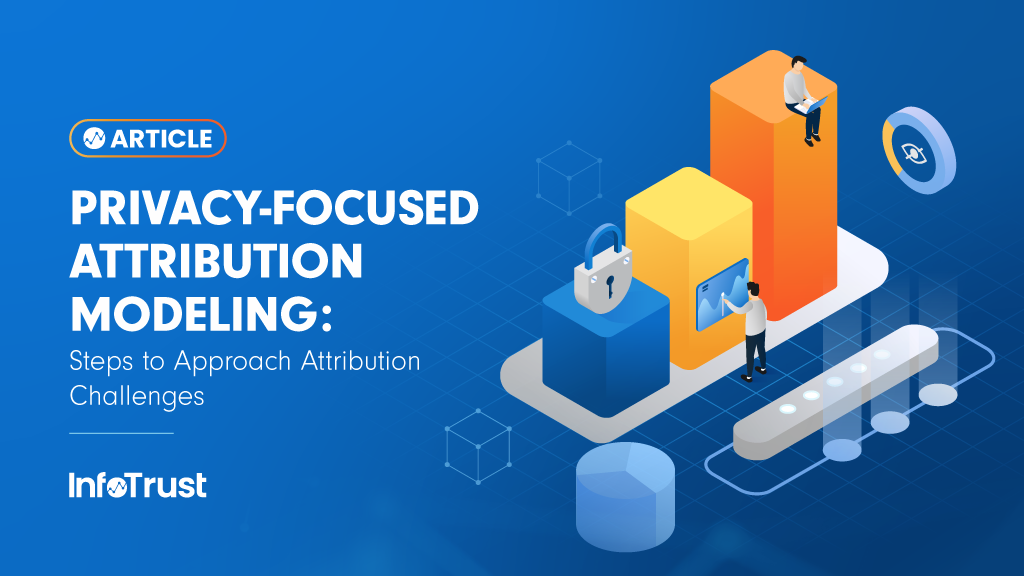With the launch of Google Analytics 4 (GA4) and the sunsetting of Universal Analytics, we have been working closely with our partners to ensure a seamless GA4 migration process. Part of that process includes defining a comprehensive GA4 measurement plan that can help in modeling for media attribution in the future so that our partners are able to evaluate the effectiveness of media channels and activities in the customers’ conversion journey.
The relationship between privacy, technology, and digital attribution is complex and constantly evolving. As technology advances and privacy concerns grow, the way digital attribution is performed and understood is likely to change in several ways. We understand the challenges that businesses in any industry face to accurately track and attribute online actions in a privacy-conscious manner.
Privacy and Technology Changes
Here’s a quick overview of some of the key privacy and technology changes that have affected marketing attribution.
- Privacy regulations and concerns impact the availability and accuracy of data used for digital attribution. For example, the General Data Protection Regulation (GDPR) in the European Union restricts the collection and use of personal data, which may affect the ability of businesses to attribute online actions to specific individuals accurately.
- Widespread adoption of ad-blocking software and platform-specific privacy policies reduces the accuracy of attribution models that rely on cookies or other tracking technologies. For example, Apple has opt-in requirements for their device ID (IDFA), Safari blocks third-party cookies by default, and Chrome plans to phase out third-party cookies.
- Customers often use multiple devices when engaging with digital media. Couple this with the privacy policies in each platform, marketers have the challenging task of tracking customer behavior across devices. This can result in an incomplete picture of the customer journey and inaccurate attribution of touchpoints.
- Increased awareness and concern about privacy may lead to changes in consumer behavior that affect digital attribution. For example, consumers may be more hesitant to provide personal data or consent to tracking. Marketers need consented customer data and the publishers they work with must have logged-in data to deliver 1:1 experiences; without this, it makes it more difficult to attribute actions to specific individuals or campaigns.
Challenges of Multi-Touch Attribution
Marketers utilized multi-touch attribution as a method of assigning credit to multiple touchpoints along a customer’s journey toward a conversion or purchase. However, this methodology relies heavily on theIDs stored in cookies to make it possible to report on impressions and clicks for a user. Therefore, traditional digital attribution methodologies such as multi-touch attribution that rely on the collection and use of personal data and data through third-party vendors may not be viable in the privacy landscape. The privacy and technology changes described above create a lack of visibility on the customer touchpoints which creates gaps in the multi-touch attribution approach.
3-Step Approach to Attribution in a Privacy-Centric Landscape
There are several steps that businesses can use to gain insights into the effectiveness of their marketing strategies. GA4 provides a great first step into adopting data-driven attribution to analyze digital media effectiveness.
Businesses often use multiple platforms to advertise that capture advertising spend and revenue. To capture media spend data and revenue data from all platforms we recommend building a customized data-driven model and our approach is three-fold:
Focus first on data-driven attribution for digital media.
- Aggregated data analysis: Instead of collecting and analyzing individual user data, businesses can use aggregated digital data analysis to gain insights into customer behavior.
- Statistical modeling: Using statistical models to estimate the likelihood that a particular marketing touchpoint influenced a customer’s behavior. This approach does not rely on personal data and can be used to gain insights into different media or tactics without compromising privacy.
- Near real-time data: Attribution modeling for digital media can be run more frequently than a Marketing Mix Modelling (MMM) which incorporates offline media. This in turn provides faster insights making them actionable to marketers.
Create org-wide adoption of the attribution model.
- Controlled experiments: Controlled experiments involve testing different marketing strategies and measuring their impact on customer behavior.
- Facilitating collaboration: Effective attribution modeling requires collaboration between various teams, including marketing, data analysis, and IT. Education can help facilitate collaboration by ensuring that everyone understands the role they play in the attribution process and how they can work together to achieve better results.
- Empowering decision-making: Educating employees about data-driven attribution will help them make informed decisions about marketing activities, enabling them to allocate resources more effectively and improve overall business performance.
Develop a strategy for combining offline and online media in the attribution model.
- Marketing Mix Modelling (MMM): Develop a strategy and process to combine offline and online media in order to gain a holistic view of customers’ conversion journey and media effectiveness.
Conclusion
In summary, privacy and technology changes are likely to have a significant impact on digital attribution. Businesses need to review their data measurement plan and adapt their attribution strategies to account for these changes and find new ways to accurately track and attribute online actions in a privacy-conscious manner.
Our proven approach to the privacy-centric attribution process has helped our partners identify which marketing activities are most effective at driving revenue and ultimately lead to better decision-making. Education has played a vital role in ensuring that our partners’ attribution models are effective and reliable.


